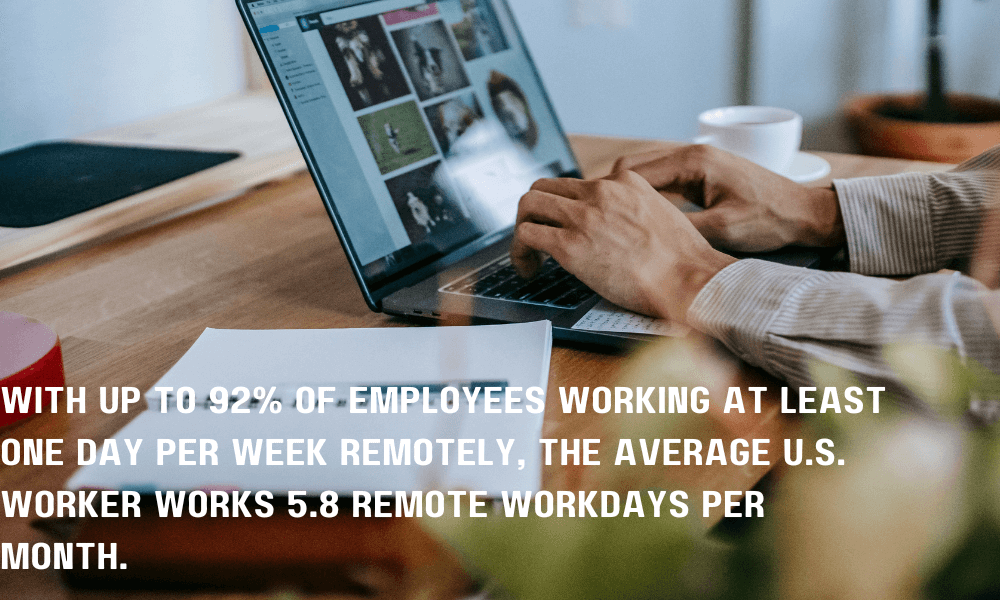
The Critical Role of Employee Integrity in Remote Work
Employee integrity is essential for any successful organization. For remote teams, it becomes even more critical because they often work independently and without direct supervision. Guaranteeing that remote employees possess high levels of honesty helps in:
1. Building Trust:
Trust is the foundation of a remote working relationship. A lack of trust can significantly hinder an organization's growth. According to a study by PwC, 55% of CEOs believe a lack of trust in the workplace threatens their organization's growth. Trustworthy employees are more likely to be reliable and honest, fostering a positive work environment.
2. Maintaining Productivity:
Employees with integrity are self-motivated and can manage their time effectively. The Harvard Business Review reports that high-trust organizations are 50% more productive.They meet deadlines consistently and produce high-quality work without constant oversight, helping to keep the team on track and focused.
3. Protecting Company Data:
Remote workers often handle sensitive information. This process ensures they adhere to data protection policies and best practices, minimizing the risk of data breaches and protecting the company's reputation.
Comprehensive Background Checks
A thorough background check is one of the best ways to guarantee employee integrity. This includes:
1. Criminal Record Checks:
Identify any past criminal behavior that could indicate a risk to your company. Most employers conduct some form of background screening to filter out candidates with potentially risky backgrounds.
Employee Screening Services: The Key to Hiring the Best Talent Safely and Efficiently | Strategic Connection
2. Employment History Verification:
Confirm the accuracy of the candidate’s employment history and look for any gaps or discrepancies. This helps verify that the candidate has the experience they claim and provides insights into their career trajectory.
3. Reference Checks:
Speak with previous employers to gain insights into the candidate’s work ethic and trustworthiness. According to CareerBuilder, 62% of employers conduct reference checks due to the valuable information provided regarding a candidate's behavior, reliability, and how they handled previous responsibilities.
Behavioral Interviews to Gauge Employee Personality
Behavioral interviews can reveal a lot about a candidate’s character, which is essential to employee integrity. Ask questions that require them to describe past experiences, such as:
1. "Can you tell me about a time when you faced an ethical dilemma at work? How did you handle it?":
This helps you see how they deal with ethical challenges. Past behavior is often a good predictor of future behavior.
2. "Describe a situation where you had to be honest, even though it was difficult.":
This shows their willingness to maintain honesty, even when it's tough. This type of question helps identify candidates who are likely to uphold ethical standards under pressure.
These questions provide insight into how candidates have handled integrity-related issues in the past, helping you gauge their potential future behavior.
Assessments to Measure Employee Integrity
In addition to interviews, use assessments to evaluate both skills and personality:
1. Cognitive Tests:
Measure problem-solving abilities and critical thinking. These tests help identify candidates who can think critically and solve problems effectively.
2. Personality Tests:
Identify traits that align with your company’s values. The Predictive Index reports that 70% of companies use personality tests to assess employee integrity. These tests can provide insights into a candidate's work style, reliability, and how they might fit within your company's culture.
3. Integrity Tests:
Specifically designed to assess honesty and ethical behavior. These tests can identify candidates who are likely to adhere to high ethical standards and avoid dishonest behavior.

Leveraging Technology For Screenings
Technology can streamline the screening process and ensure thoroughness along the way:
1. Video Interviews:
Allow you to assess body language and facial expressions, which can provide additional insights into a candidate’s honesty. Online interviews also help simulate the potential work environment, giving you a sense of how the candidate communicates and presents themselves virtually.
How To Conduct a Virtual Interview in 2024
2. Automated Background Checks:
Quickly verify credentials and past employment, saving time and reducing errors. Automated checks ensure consistency and can process large volumes of candidates efficiently.
Shaping a Culture of Honesty
Maintaining employee integrity doesn’t end once they're hired. Create a culture that values and promotes ethical behavior:
1. Set Clear Expectations:
Clearly communicate your company’s values and code of conduct. Providing employees with a solid understanding of what is expected of them can help prevent ethical breaches and reinforce the importance of employee integrity.
2. Provide Training:
Offer regular training on ethical behavior, data protection, and company policies. Training programs should be engaging and interactive, helping employees understand the real-world implications of ethical decision-making.
3. Encourage Transparency:
Create an environment where staff feel comfortable reporting unethical behavior without fear of retaliation. Implementing a robust whistleblower policy can help uncover issues before they escalate and demonstrate your company's commitment to honesty.

Clear Remote Work Policies
Set clear policies for remote work so everyone understands their responsibilities:
1. Communication Protocols:
Define how and when employees should communicate with their team and managers. Clear communication expectations can prevent misunderstandings while keeping workers connected and engaged
2. Work Hours and Availability:
Outline expected work hours and availability, including guidelines for flexible schedules. A study by Owl Labs found that remote workers are 47% more productive. This shows that providing structure can help maintain productivity and ensure that staff are accessible when needed.
3. Security and Data Protection:
Specify the security measures workers must follow to protect company data. This might include instructions on using secure networks, handling sensitive information, and reporting security incidents.
Probationary Periods For New Hires
Implement a probationary period for new hires to assess their trustworthiness and performance:
1. Monitor Performance Closely:
Regularly check in on the new hire’s performance and adherence to company policies. This allows you to address any issues early and provide feedback for improvement.
Virtual Screening: How To Keep Employees Before They Even Start! | Strategic Connection
2. Evaluate Cultural Fit:
Determine if the new hire represents your company’s values and culture. Observing how they interact with their team and handle their responsibilities can provide valuable insights into their long-term potential.
https://www.youtube.com/embed/v0V6gkv48rE
Encouraging Peer Feedback
Peer feedback can help maintain high standards within your remote team:
1. Foster Accountability:
Promote a culture where employees hold each other to high standards. Peer feedback can help identify integrity issues that might not be apparent to managers.
2. Enhance Team Collaboration:
Encourage open and honest communication to strengthen team dynamics. Peer feedback can highlight areas for improvement and recognize positive contributions, reinforcing desired behaviors to maintain employee integrity.
Continuous Monitoring Tools for Employee Integrity
Use tools to ensure that remote employees follow company policies and stay productive:
1. Project Management Software:
Track progress on tasks and projects. According to the Project Management Institute, organizations that use project management software save 28 times more money than those that do not. Project management tools provide visibility into work patterns and help identify potential issues early.
2. Time-Tracking Tools:
Monitor work hours and activity levels.Time-tracking can help identify discrepancies and provide data for performance evaluations.
3. Communication Platforms:
Maintain regular check-ins and ensure employees stay engaged and aligned with team goals. Tools like Slack or Microsoft Teams can facilitate real-time communication and collaboration.
Final Words
Screening remote employees for integrity is necessary for building a trustworthy and productive remote workforce. By conducting thorough background checks, using behavioral interview techniques, implementing skills and integrity assessments, leveraging technology, and fostering a culture of integrity, companies can ensure they hire remote employees who will contribute positively to the organization. Maintaining high standards of employee integrity not only protects your company’s reputation but also provides a cohesive and effective remote team. By establishing clear policies, using probationary periods, encouraging peer feedback, and leveraging continuous monitoring tools, you can create an environment where employee's thrive!
We at Strategic Connection specialize in helping small scale businesses who offer home services. Check out our services and let us know if we can be of any help.